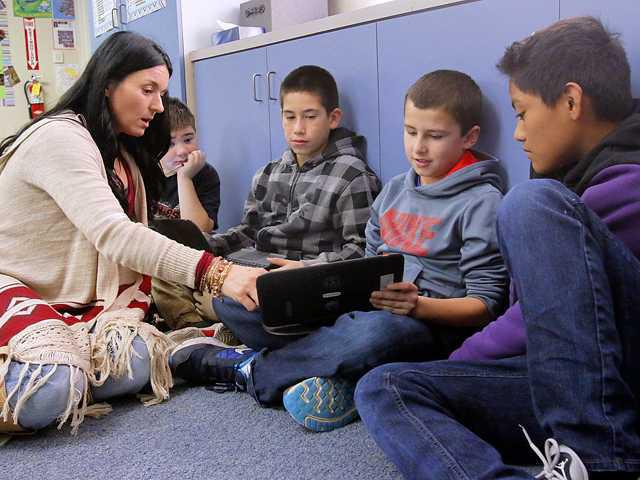Ken Johnson said that he doesn’t have anything against technology.
But in remarks to the Manteca Unified Board of Education on Tuesday night, be pointed out some concerns he has about how tech has slowly replaced the standard method of teaching and the impacts that it is having on students with the classroom and at home.
Johnson, the President of the Manteca Educators Association, told the board that the hours that students spend on handheld devices and computers throughout the day concerns him – especially after recent medical recommendations to limit the amount of screen time that children have throughout the day.
Why, Johnson asked, is the district bucking the trend being pushed my medical researchers?
“One thing we don’t talk about enough, and one thing that district officials never talked about, are the health effects of the devices on the children,” he said. “Have you heard about the effect of blue light on humans? Neurological studies show that blue light inhibits the production of the hormone melatonin, which promotes sleep.
“If you use a device to read at night, you take longer to fall asleep and have less REM sleep and it takes longer to wake up. At home, I would expect students, who are addicted to their devices just like to the rest off, don’t have the motivation to turn off their devices and go to bed.”
But Johnston’s criticism of the district – which has received a few complaints from teachers ever since implementing the massive Going Digital overhaul that put a tablet in the hand of every single student – ironically came after two different sets of teachers gave presentations that highlighted how the technology is being used in their respective classrooms.
The project based learning presentation focused on a group of students that recreated colonial shops and trade stores and used their devices and the district’s Microsoft technology to conduct all of the research in order to make the project successful.
Rather than speaking up during the public comment portion of the meeting, Johnson waited until the board was set to approve a resolution that accepted final completion for the Going Digital infrastructure project – using all five minutes to outline where he thinks the effort is failing students.
“Babies are learning about human interaction with face-to-face time, speaking to parents and having things they say modeled back to them,” he said is his closing remarks. “As humans, that need never goes away, does it? But yet devices interfere with that, don’t they? Those of you with teenagers know how difficult it is to hold a conversation with them. As humans, we need to promote face time, not screen time.”
MEA leader slams Going Digital



